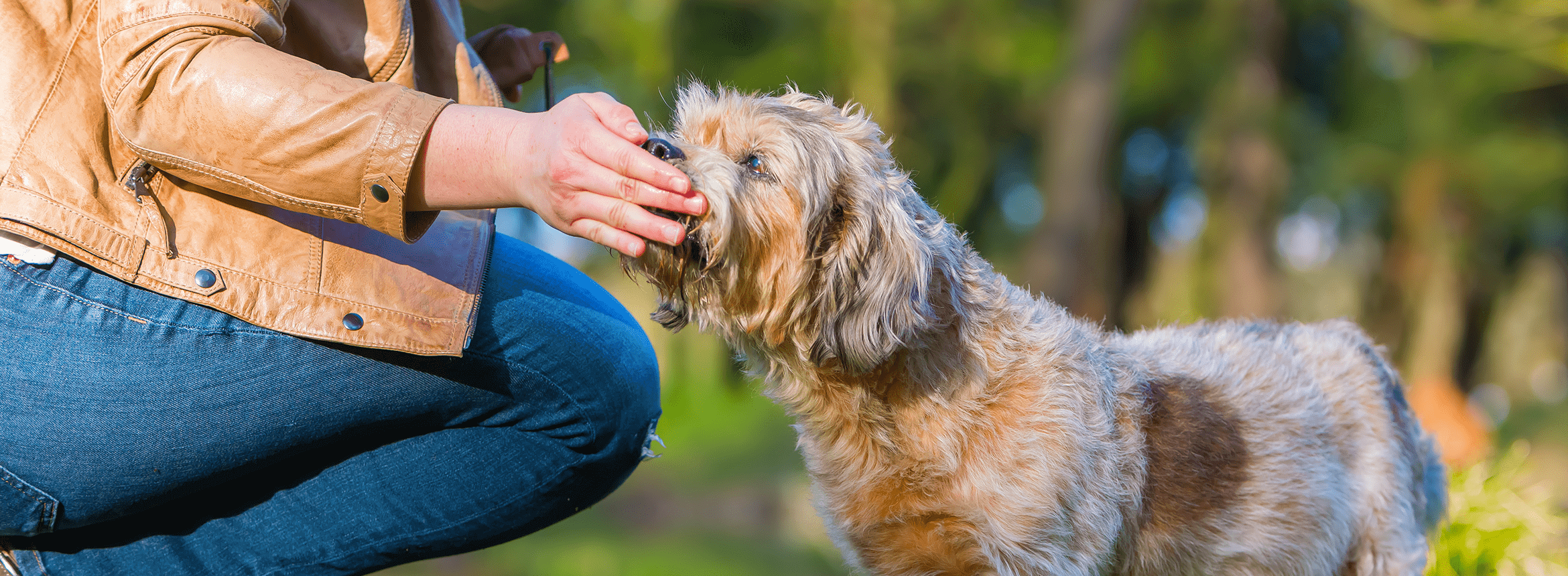Senior Dog Training 101 from Eric Wiese of Lucky Dog
You can teach an old dog new tricks. Dogs are lifelong learners and your best friends – none of that changes when your dog is in their golden years. But there are some things to definitely be aware of when it comes to training your senior dog.
If you are adopting a senior dog, congratulations! Keep in mind that there is a significant cost associated with their care. In addition to gently acclimating them to your home, multiple vet visits are required to assess and address any pain points with your pooch. We’ve partnered with Eric Wiese, Animal Behavior Specialist, Veterinary Behavior Consultant, and host of the CBS series, “Lucky Dog,” to help you form a great training foundation for you and your dog!
Get to the Vet
Since your dog can’t tell you what’s hurting, it’s incredibly important to bring your senior dog into the vet regularly for checkups, particularly if your dog’s breed has a propensity toward a specific ailment (e.g., hip dysplasia in German Shepherds). That way, you can stay on top of everything and know which exercises and training will strengthen your senior dog and which ones to avoid.
>Dogs Are What They Eat, Too
Nutrition is extremely important for senior dogs. The dietary needs of a puppy are vastly different than those of a senior dog. What’s good for a puppy can actually be bad for your senior dog. When dietary needs are not being met, not only can this affect your senior dog’s health, but also their behavior. Work with your vet to come up with a dietary plan that fulfills your senior dog’s needs. This may include supplements and specially formulated food.
Patience, Positivity, Never Punishment
Dogs are social, group animals. If you’re adopting a senior dog, you’ll want to give them as much time as they need to get used to you and your home. Take a look at our “Puppy Tips” article for ways you can create a safe environment in your home for your senior dog. You don’t know what your senior dog has been through and what might be triggering for them. It’s going to be a lot of trial and error, and that’s perfectly fine. Just make sure to be there for them with lots of positivity, love, and senior-appropriate dog treats. When you do earn their trust, you’ve got a friend who will want to make you happy all the time.
Training and teaching your senior dog tricks strengthens your bond and gives them a sense of purpose. Keep the training sessions shorter at first and see how long they can engage before tiring out. Start them in areas where there aren’t any other distractions, so they can focus.
Feel free to up the ante! It might take a little longer, but once your senior dog has the basics down, teach them some fun, more advanced tricks. Nose work and scent games are a lot of fun for both you and them – fetching particular items is a great activity, too.
HAVE FUN! That’s it. That’s the whole tip.
There’s no limit to the love and bond between you and your dog, no matter the age. We don’t deserve dogs, and yet, they still choose us. These tips can help make sure you’re returning the favor.
Consider hiring a professional, certified trainer or animal behaviorist to help you through your dog’s development and check out our other tips and tricks on training your playful pooch below. Be sure to watch “Lucky Dog” Saturday mornings on CBS – check your local listings.
DISCLAIMER: Always consult your veterinarian on your dog’s vaccination schedule to make sure they are healthy enough to be on the ground outside.

